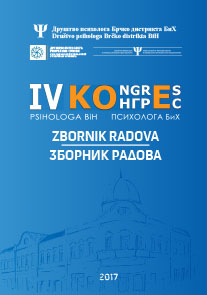Studija slučaja kognitivno-bihejvioralne terapije opsesivno-kompulzivnog poremećaja
A case study of cognitive-behavior therapy of obsessive-compulsive disorder
Author(s): Anita MitrovićSubject(s): Cognitive Psychology, Neuropsychology, Behaviorism
Published by: Logotip
Keywords: obsession, compulsion; CBT treatment;
Summary/Abstract: The essence of cognitive theory concerning obsessive compulsive disorder (OCD) is based on the knowledge that intrusive, unwanted thoughts are a universal human experience. However, people with OCD give special meaning to their thoughts which then become threatening, while in healthy individuals these thoughts have a neutral meaning. The aim of this paper is to present a cognitive-behavioural treatment of an obsessive-compulsive disorder in male patients aged 26. Behavioural approach to treatment of obsessive-compulsive disorder consists of presenting and preventing answers. Cognitive techniques of guided discovery and Socratic dialogue are aimed at the patient in order for him/her to attribute new meaning to intrusive thoughts, with the final goal to neutralize and make them unthreatening. The use of cognitive-behavioural techniques with male patients has contributed to symptoms withdrawal. New test results have showed a reduction at all scales, which is in accordance with the report of the patient himself. Both at the beginning and the end of the treatment evaluation questionnaires SCL-90 (list of positive symptoms) and YSQ (Yung early maladaptive schemes) were conducted. This kind of treatment results are in line with the results of previous studies which showed that exposure and prevention of response enables the client to assess the situation realistically and distinguish that the things which scare him do not exist. In parallel with application of cognitive techniques the patient slowly comes to the reaction quench. Conclusion: Continuous and structured application of cognitivebehavioural techniques on male patients with obsessive-compulsive disorder contributed to the personal improvement, withdrawal of symptoms and reducing on scales applied for assessing the symptoms.
Journal: Zbornik radova Kongresa psihologa Bosne i Hercegovine
- Issue Year: 2017
- Issue No: 4
- Page Range: 125-141
- Page Count: 17
- Language: Bosnian

